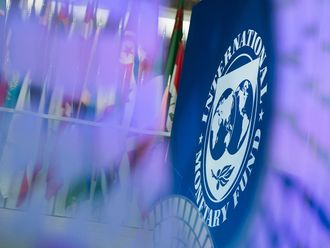
SYDNEY: A government-backed inquiry into Australia’s finance sector on Monday said it will start its year-long investigation by scrutinising the selling tactics of banks’ most lucrative products — mortgages.
The Royal Commission inquiry heard on its opening day that almost half of the over 385 public submissions it had received were about banks, reflecting the erosion of public trust in a sector that has been rocked by scandals including interest rate rigging and alleged money laundering.
The commission’s focus on banks will expose some of Australia’s biggest and most profitable companies to unprecedented scrutiny, with top executives likely to be grilled in public and compelled to disclose confidential documents.
Its final recommendations could lead to criminal or civil prosecutions as well as greater regulation, just as the banks are dealing with a revenue crunch following years of record profits.
Mortgages are Australian banks’ most lucrative money-spinners. The four major lenders — Commonwealth Bank of Australia (CBA), Australia and New Zealand Banking Group, National Australia Bank, and Westpac Banking Corp — hold about 80 per cent of the country’s A$1.7 trillion (Dh4.89 trillion) mortgage market.
“The commission will hear evidence of events involving certain financial services entities in the context of home lending that suggest that consumers have not always enjoyed the right to be treated honestly and fairly when it comes to home loans,” Rowena Orr, a barrister who is assisting the commission, said at the start of the inquiry in Melbourne.
“Some of these events may have involved breaches of the law while others may have involved departures from community standards and expectations.” A Royal Commission has the power to compel witnesses, recommend criminal charges and propose legislative changes.
While Australia’s finance sector has been subjected to numerous probes in the past, it is the first time the whole industry has faced such scrutiny.
After years of refusing to order such a far-reaching inquiry, the centre-right federal government relented to public pressure late last year in the wake of money-laundering allegations against CBA.
The banks also gave up on campaigns to avoid an inquiry and published a joint letter in November saying that it was now in the national interest to have one.
The commission also will examine the scandal-hit wealth management and financial advice industries.
Nowhere to hide
Australia’s big banks are among the most profitable in the world, earning net profit margins of 36.4 per cent before tax in the June quarter of 2017.
But they are under mounting regulatory pressure to boost capital and rein in lending to speculative investors amid fears of a downturn in the Sydney and Melbourne property markets.
CBA last week posted a surprise drop in first-half cash profit, weighed down by A$575 million ($454 million) in provisions related to the money laundering allegations. Outgoing Chief Executive Ian Narev warned that the industry would be affected for some time by regulatory charges “in one shape or form”.
“The banks are really in the spotlight now,” said Matthew Ryland, portfolio manager at Greencape Capital, which holds bank shares.
“They would be less aggressive while all this is going on, so there will be an impact (to revenues),” Ryland said, adding that it was too early to quantify the impact.
Commissioner Kenneth Hayne, in charge of the inquiry, said he would demand to see confidential settlements brokered by the finance industry if they shed light on wrongdoing.
Any attempt to prevent information being made public, including dispute settlements with customers, would “incite the closest attention”, he said.
A Westpac spokesman said the bank would not enforce “any confidentiality or non-disclosure agreements should a person want to make a submission”.
Representatives of CBA, NAB and ANZ did not immediately return emails seeking comment.
The next public hearing will be held in about a month.
—Reuters












